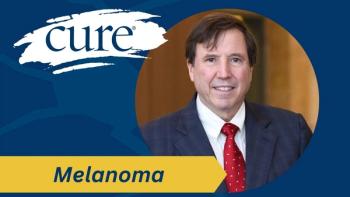
FDA Approves Keytruda for Locally Advanced Form of Skin Cancer
The Food and Drug Administration (FDA) approved Keytruda (pembrolizumab) for the treatment of patients with locally advanced cutaneous squamous cell carcinoma (cSCC) that cannot be cured by surgery or radiation.
The Food and Drug Administration (FDA) approved Keytruda (pembrolizumab) for the treatment of patients with locally advanced cutaneous squamous cell carcinoma (cSCC) that cannot be cured by surgery or radiation, according to Merck, the manufacturer of the immunotherapy agent.
The approval is based on findings from the KEYNOTE-629 trial, where 50% of patients responded to treatment with Keytruda (known as an overall response rate). Seventeen percent of patients given Keytruda had a complete response, meaning that there was no detectable cancer after treatment, and 33% had a partial response, meaning that there was some shrinkage of cancer because of Keytruda.
The majority (81%) of patients who responded to the treatment had a response that lasted six months or longer, and 37% had a response that lasted a year or longer.
The average age of patients with cSCC who received Keytruda in the study was 76 – the youngest person was 35 and the oldest person was 95. Forty-one percent of patients had an Eastern Cooperative Oncology Group (ECOG) performance status of 0, and 59% had an ECOG performance status of 1. ECOG measures a person’s ability to function on a range of 0 to 5, with 0 being fully active, 1 being restricted for strenuous activity, but otherwise able to carry out light work, all the way to 5, death.
Keytruda works by activating the immune system and helping it to recognize (and therefore attack) cancer cells. So, there can be immune-related side effects with the drug, some of which can be serious.
Common side effects included pneumonitis, colitis, hepatitis, endocrinopathies (toxicity to the adrenal gland), kidney problems, skin reactions, organ transplant rejection and stem cell transplant rejection. It is important that patients notify their health care team immediately if they feel any negative effects after taking Keytruda.
For more news on cancer updates, research and education, don’t forget to




